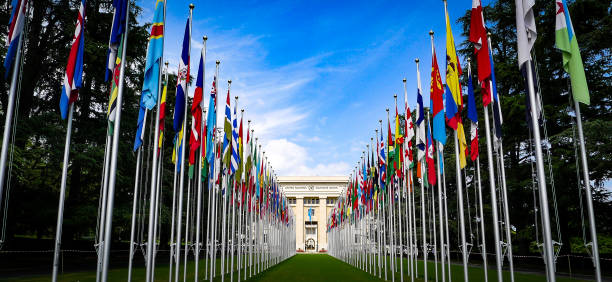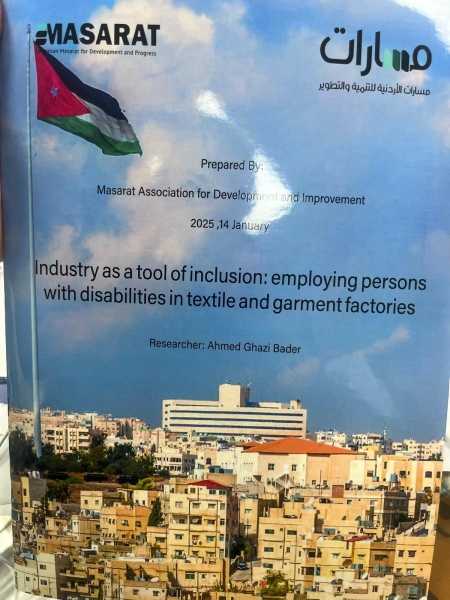سفير "أمم متحدة": أمن غذائي مهدد وأمن وطني على المحك أمام ملامح التغير المناخي

سفير "أمم متحدة" أسبق: أمن غذائي مهدد وأمن وطني على المحك أمام ملامح التغير المناخي
قال سفير منظمة الأمم المتحدة الأغذية الأسبق الدكتور فاضل الزعبي إن التغير المناخي يُعد تحديًا بالغ الأهمية أمام رؤية التحديث الاقتصادي في الأردن، لا سيما فيما يتعلق بالرؤية الاستراتيجية للأمن الوطني، إذ يؤثر بشكل مباشر على الموارد المائية والزراعية، التي تشكل الأساس المتين للأمن الغذائي، والاستقرار الاقتصادي والاجتماعي في المملكة.
التغير المناخي: عقبة استراتيجية أمام رؤية التحديث الاقتصادي الأردني
وأوضح في تصريحٍ خاص أن تأثير التغير المناخي في الأردن يتجلى من خلال انخفاض معدلات الهطول المطري، وارتفاع درجات الحرارة، وتفاقم شح المياه، إلى جانب الفيضانات المفاجئة التي تحدث في غير مواسمها، لتؤدي هذه الظواهر إلى تدهور الأراضي الزراعية، الأمر الذي يقلل من إنتاجيتها ويزيد من الضغوط على الموارد الطبيعية، خاصة المياه والتربة، التي تعد مواردًا محدودة وهامة لاستدامة الحياة الاقتصادية والاجتماعية.
الاختلال المناخي في الأردن: بين ندرة الموارد وتصاعد المخاطر
ونوّه الزعبي أن الأردن يُعتبر من بين الدول ذات أدنى معدلات توفر المياه للفرد على مستوى العالم، إذ يبلغ نصيب الفرد 62 مترًا مكعبًا سنويًا، وهو أقل بكثير من الحد الأدنى العالمي البالغ 1000 متر مكعب، مضيفًا أن هذه الأرقام تعكس فجوة مائية كبيرة تؤثر على كافة القطاعات الحيوية، وفي ظل هذا النقص الحاد، يتزايد الضغط على الموارد المائية، ما ينعكس سلبًا على الإنتاج الزراعي، ويؤدي تدهور الأراضي وشح المياه إلى تقليص الإنتاج الغذائي.
شح المياه وتدهور الأراضي: معادلة تهدد الأمن الوطني والغذائي
وبيّن أن نقص الموارد المائية والغذائية يتسبب في ارتفاع تكاليف المعيشة وفواتير الغذاء، ويؤدي إلى توترات اجتماعية وهجرة جماعية من المناطق الريفية إلى المدن، لتؤثر هذه التحديات سلبًا على الدخل الفردي وقدرة المواطن على توفير غذاء صحي ومتوازن، في تهديدٍ يمس الاستقرار الاجتماعي ويزيد من الفجوة الاقتصادية بين الطبقات المختلفة.
من الجفاف إلى الفيضانات المفاجئة: ملامح جديدة للتغير المناخي في المملكة
ولفت الزعبي الانتباه إلى أن الجفاف كان يحدث في الماضي كل أربع إلى خمس سنوات، إلا أنه أصبح الآن يتكرر بشكل شبه سنوي، مشيرًا إلى أن ذلك يزيد من حدة التحديات المناخية ويشكل تهديدًا مباشرًا للأمن الغذائي والمجتمعي، وبالتالي للأمن الوطني بشكل عام، وهذا التكرار يجعل من الضروري تبني استراتيجيات فعّالة للتكيف مع هذه التغيرات المناخية المستمرة.
الزراعة تحت ضغط المناخ: كيف تتراجع الإنتاجية وتتعاظم التحديات؟
ولمواجهة هذه التحديات المناخية، دعا إلى اتخاذ إجراءات استباقية لتعزيز قدرة الأردن على التكيف والتصدي للتغير المناخي، ومنها تحسين كفاءة استخدام المياه، إذ تستهلك الزراعة نحو 52% من إجمالي الموارد المائية المتاحة سنويًا، أي ما يزيد عن 500 مليون متر مكعب، في ظل فجوة بين العرض والطلب تصل إلى 300 مليون متر مكعب، لذا، من الضروري العمل على رفع إنتاجية المتر المكعب من المياه من خلال: تطوير أنظمة الري الحديثة: مثل الري بالتنقيط وتقنيات الري الذكي، التي تساهم في تقليل فاقد المياه وزيادة كفاءة استخدامها، وتحديث البنية التحتية لنقل المياه: حيث تعاني الشبكات الحالية من تسرب يصل إلى 52% من المياه، الأمر الذي يتطلب تجديد مواسير وأنابيب النقل لضمان وصول المياه بكفاءة إلى المناطق المستفيدة، جنبًا إلى جنب تعزيز استخدام المياه المعالجة: التي بلغت نسبة استخدامها 92%، مع تطوير طرق معالجة متقدمة تجعل المياه المعالجة صالحة للاستخدام في الزراعة المباشرة، مما يقلل من الاعتماد على المصادر التقليدية للمياه.
مشروع الناقل الوطني لتحلية المياه: خطوة نحو سد فجوة الاحتياجات المستقبلية
وأكد الزعبي أهمية مشروع "الناقل الوطني لتحلية المياه" لما يشكله من خطوة استراتيجية مهمة، فهو سيضيف 300 مليون متر مكعب من المياه سنويًا، إلا أن هذه الزيادة قد تكون كافية لفترة قصيرة فقط نظرًا لتزايد السكان والاستهلاك، لذا، من الضروري التخطيط لزيادة قدرة المشروع إلى 600 مليون متر مكعب أو أكثر خلال العقد المقبل، بالإضافة إلى مراقبة وضبط عمليات استخراج المياه الجوفية واستخدام تقنيات الحصاد المائي لتعزيز مخزون المياه المتاحة.
التكامل بين المياه والطاقة والغذاء والبيئة: مفتاح لاستدامة الاقتصاد الوطني
وفي مجال الأمن الغذائي، قال إنه يجب التركيز على تحسين مرونة الإنتاج الزراعي المحلي من خلال اعتماد بذور مقاومة للجفاف وزيادة إنتاجيتها، وتوسيع نطاق الزراعة داخل البيوت المحمية، وتشجيع الزراعة الذكية مناخيًا مثل الزراعة المائية والزراعة العمودية، التي تستهلك كميات أقل من المياه وتوفر إنتاجًا أكبر، وزيادة السعات التخزينية للقمح والشعير من خلال الاستثمار في بناء المزيد من الصوامع الكونكريتية وغير الكونكريتية، وشراء هذه المواد عند انخفاض أسعارها عالميًا لتعزيز القدرة على مواجهة تقلبات الأسعار.
وعن التكامل بين الأمن الغذائي، والمائي، والطاقة، والبيئة، ذكر الزعبي أن ذلك يتطلب التوسع في البحوث الزراعية ودعم الابتكار لتطوير محاصيل مقاومة للظروف المناخية القاسية واستخدام أقل للمبيدات الحشرية والأسمدة، وتحسين إدارة الموارد الطبيعية بكفاءة عالية من خلال استخدام تقنيات حديثة وأدوات إدارة متطورة.
وعلى الرغم من الجهود الحكومية المبذولة في وضع استراتيجيات شاملة مثل رؤية التحديث الاقتصادي واستراتيجيات قطاعي المياه والزراعة، إلا أن الفجوة بين الخطط والتطبيق العملي ما تزال قائمة، لذا، من الضروري توجيه الاستثمارات نحو البنية التحتية الزراعية والمائية، ودعم صغار المزارعين من خلال توفير الحوافز المالية والتقنيات الزراعية بأسعار معقولة، وفقًا لما صرّح به.
وتابع الزعبي أن الحكومة الأردنية تعمل على تعزيز قدرتها في مواجهة التغيرات المناخية من خلال اعتماد نهج علمي شامل يتجلى في رؤية التحديث الاقتصادي والاستراتيجيات القطاعية المختلفة، بما يشمل إجراء دراسات وتقييمات لتأثيرات التغير المناخي، وتطوير نماذج محاكاة لتقدير التغيرات في معدلات هطول الأمطار ودرجات الحرارة، كما يتعاون الأردن بشكل مكثف مع المنظمات الدولية مثل الفاو وبرنامج الأمم المتحدة الإنمائي لتطوير خطط تستند إلى تحليل المخاطر المناخية.
ومع ذلك، ما زال هناك نقص في الاستثمار في البنية التحتية الزراعية والمائية، خاصة فيما يتعلق بمشروعات تحلية المياه وزيادة كفاءة شبكات النقل، بالإضافة إلى ذلك، تواجه الحكومة تحديات في تمكين صغار المزارعين من استخدام التقنيات الحديثة بسبب تكلفتها العالية، مما يستدعي إنشاء صناديق تمويل زراعية مستدامة لدعم المزارعين والمستثمرين في قطاعات المياه.





